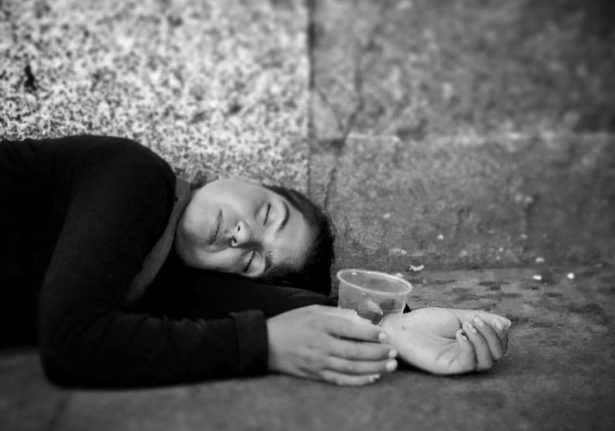Police in the suburb of Evry moved in at dawn to clear the camp following an expulsion order issued by local mayor Francis Chouat on safety and public health grounds, pre-empting by 24 hours a court hearing on the camp's future.
The government pledged last week that it would seek court orders for clearances but that requirement was over-ridden by the mayor's ruling that the camp's proximity to a commuter rail line made it dangerous.
Interior Minister Manuel Valls, who has sanctioned the clearance of several Roma camps since the new Socialist government came to power, backed the move, describing sanitary conditions in the Evry settlement as "unbearable."
But the police sweep was denounced as "scandalous" by Catholic Bishop Jacques Gaillot.
"If you're going to kick people out, you have to know what you're going to do with them," he said. "That wasn't the case here. It's a disgrace."
An estimated 15,000 ethnic Roma live in camps like the Evry one across France and their presence, almost invariably the subject of hostility from local residents, has become a major political headache for the Socialists.
Valls has continued the previous administration's approach of periodically dismantling camps and offering free flights and financial incentives for Roma to return to their countries of origin.
But the policy, decried as reminiscent of Nazi-era persecution when it was launched by former president Nicolas Sarkozy in 2010, has had little impact on overall numbers and Valls has come under fire from some of his own colleagues, human rights groups and the European Commission.
The government moved last week to appease its critics by announcing that it would ease restrictions on Bulgarian and Romanian migrants' access to the jobs market.
It also said clearances would only be carried out on the basis of court orders and ideally with a plan for alternative accommodation having been established first.
That was not the case in Evry, where the expelled Roma trudged wearily from a site that has been their home for several months, their possessions stuffed into cases and plastic bags or piled up on prams.
"The police arrived at 5:00 am," said Lakatos, a 22-year-old who has been in France for three years and had lived in the camp for the last three months. "I've no idea where we are going to go."
Serge Guichard, who works for a Roma support group, said: "The only people that have come to see them are the police. There were 19 kids in this camp, all of them were going to school. Now they risk ending up on the streets."
Even the Socialist mayor's own deputy, Hervé Pérard, questioned whether the expulsion was necessary.
"I don't understand why we did not wait for the court hearing. I don't understand why it was so urgent," said Perard, a member of the Greens, the Socialists' minority partners in government.
Valls meanwhile announced that he and European Affairs Minister Bernard Cazeneuve would be visiting Romania in September for talks on the Roma issue.
The interior minister believes France is paying the price for Romania's failure to address centuries of discrimination against the Roma.
"I want to understand why strong integration policies are not being implemented in the countries of origin," Valls said.






 Please whitelist us to continue reading.
Please whitelist us to continue reading.
Member comments